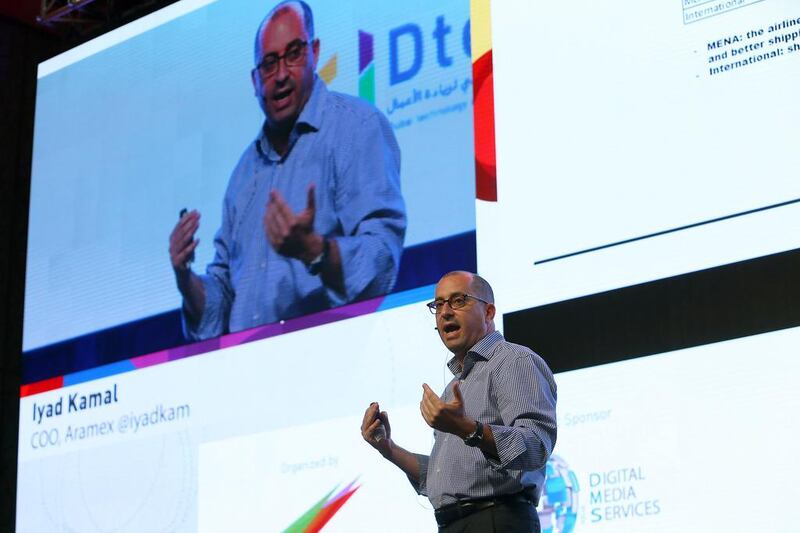The size of the region's e-commerce market has doubled over the course of the past two years, but the rate of growth has slowed by half as structural obstacles such as a cash-dominated economy and a shallow pool of online retailers hold back the sector in the Middle East, according to Aramex.
The regional logistics company delivered its 2012-13 e-commerce report at the opening of the Arabnet Digital Summit 2014 in Dubai yesterday. The research showed that, while e-commerce-related business grew 100 per cent last year, that was down from 150 per cent in 2012.
“We handle millions of packages a year,” said Iyad Kamal, Aramex’s chief operating officer. “In 2011 there was growth but it was basically a straight line, in 2012 we saw a boom with e-commerce deliveries jumping 150 per cent, 2013 has slowed but still grown 100 per cent. International growth was 20 per cent in 2013 as international e-tailers targeted the region and shipped into our markets.”
Saudi Arabia is the top country for online retailing, followed by the UAE and Egypt in second and third, together making up 75 per cent of the Mena online retail market. The slowing growth in the e-commerce space was attributed to a variety of factors including regional free zones, local banks and bureaucracy not being ready to handle start-ups. The size of the industry was also an issue, as is the reliance on cash on delivery (COD) payment methods.
“The number of e-commerce players here is limited, there are only about five dedicated players,” said Mr Kamal. “You cannot have an industry of that size, we need thousands. Free zones and banks have to make it easier for e-tailers to pop up and start here. It’s still a COD market, that is a fact and we as Aramex are looking at enhancing that. It’s what our customers want, international e-tailers will begin to offer it [COD] in the next couple of years.”
The current strength of traditional bricks and mortar retail was highlighted by Facebook Mena research that showed that by 2020 it will have dropped to 85 per cent of trade against 92 per cent today.
This suggests online commerce will double over the next six years, but traditional retailing will still dominate, making opportunities for e-tailing limited, according to investors.
“I think I’m very sceptical of the odds of success of pure play e-retail companies in the Arab World,” said regional venture capitalist Khaldoon Tabaza, a founder and managing director of iMena. “Because e-retail is at the end of the day retail. So the value proposition is the scale of your procurement, your understanding of the retail industry, your relationships in the retail industry, etc. It has become much more of a retail business, and much less of an online business. The first billion-dollar e-companies in the Mena region will not be e-retail companies.”
Global players like Amazon will be incorporating e-commerce into bricks and mortar operations, becoming “clicks and mortar” retailers.
“If you are a retailer, ensure a customer will use your online offering.If you don’t have a product, order it for them in-store,” said Sajjad Bhojani, the head of e-commerce, at EXtra Stores. “Connect with your customer. Don’t get distracted by the different technologies. Make sure whatever you employ delivers to your customer and yourself. Know how your customer uses technology and wants to use technology.”
ascott@thenational.ae
* With additional reporting by Adam Bouyamourn
Follow us on Twitter @Ind_Insights






